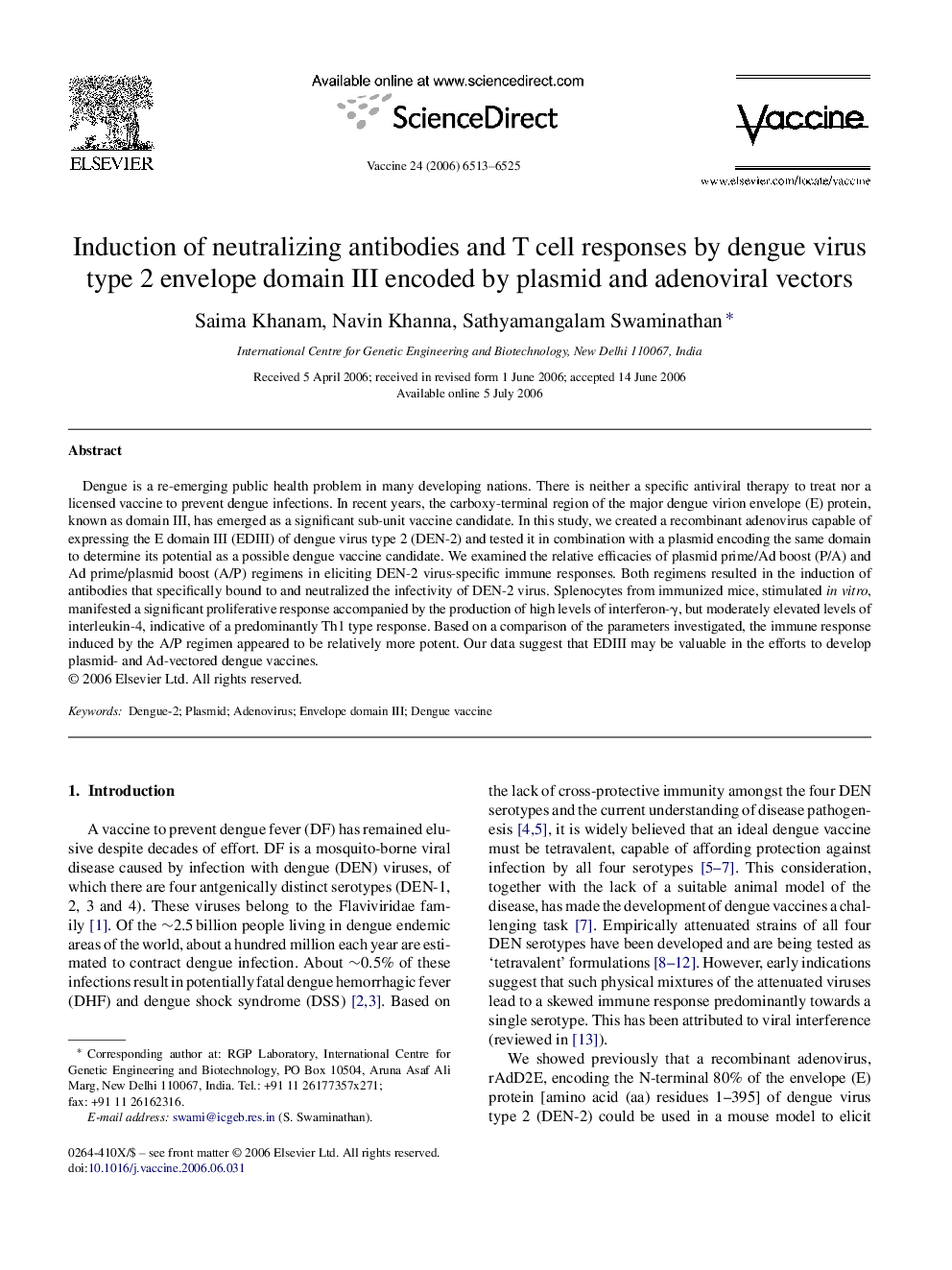| Article ID | Journal | Published Year | Pages | File Type |
|---|---|---|---|---|
| 2408795 | Vaccine | 2006 | 13 Pages |
Dengue is a re-emerging public health problem in many developing nations. There is neither a specific antiviral therapy to treat nor a licensed vaccine to prevent dengue infections. In recent years, the carboxy-terminal region of the major dengue virion envelope (E) protein, known as domain III, has emerged as a significant sub-unit vaccine candidate. In this study, we created a recombinant adenovirus capable of expressing the E domain III (EDIII) of dengue virus type 2 (DEN-2) and tested it in combination with a plasmid encoding the same domain to determine its potential as a possible dengue vaccine candidate. We examined the relative efficacies of plasmid prime/Ad boost (P/A) and Ad prime/plasmid boost (A/P) regimens in eliciting DEN-2 virus-specific immune responses. Both regimens resulted in the induction of antibodies that specifically bound to and neutralized the infectivity of DEN-2 virus. Splenocytes from immunized mice, stimulated in vitro, manifested a significant proliferative response accompanied by the production of high levels of interferon-γ, but moderately elevated levels of interleukin-4, indicative of a predominantly Th1 type response. Based on a comparison of the parameters investigated, the immune response induced by the A/P regimen appeared to be relatively more potent. Our data suggest that EDIII may be valuable in the efforts to develop plasmid- and Ad-vectored dengue vaccines.
